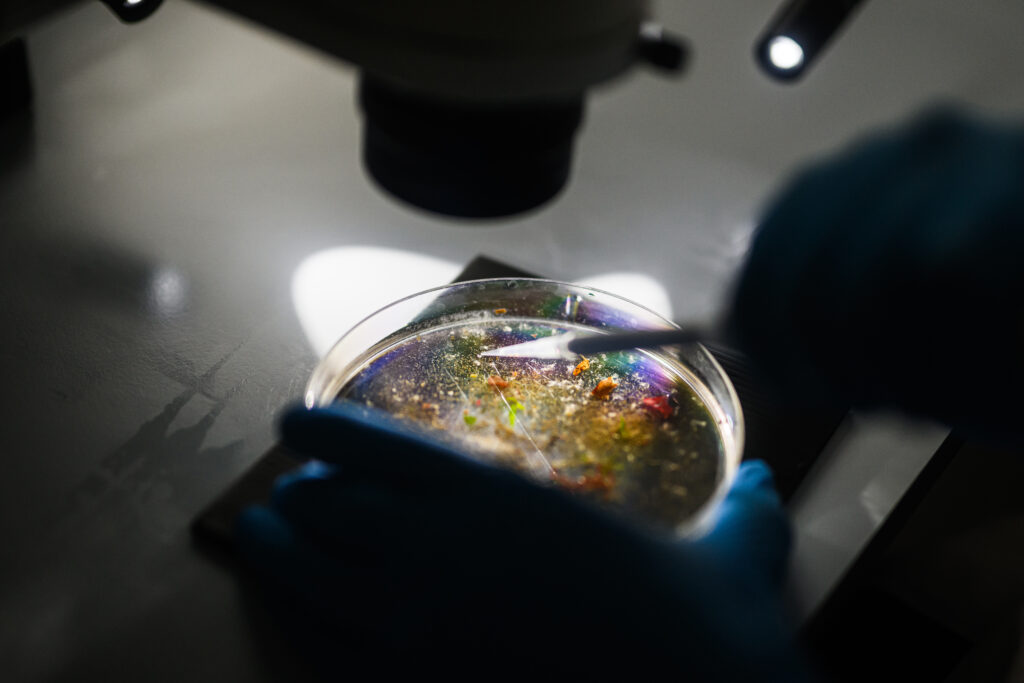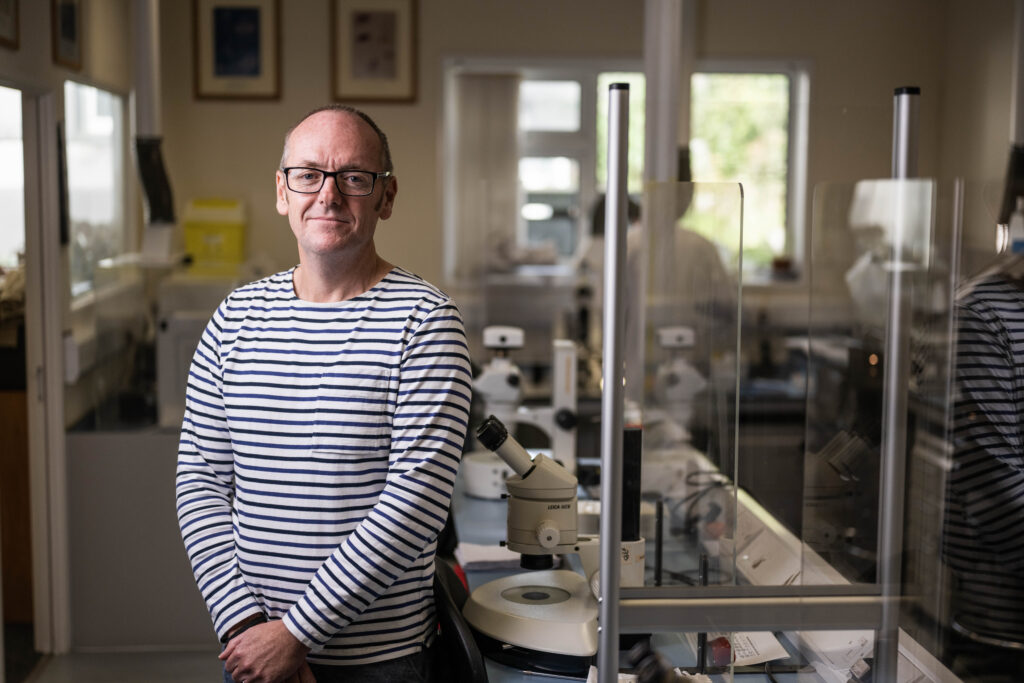
David Johns, Head of the Continuous Plankton Recorder (CPR) Survey operated by the Marine Biological Association (MBA) has played an integral role in driving the development of the first ever global Plankton Manifesto.
The landmark document, unveiled during the 79th session of the United Nations General Assembly in New York, emphasises the critical role of plankton in addressing the interlinked global crises of climate change, pollution, and biodiversity loss.
It has been produced by the Ocean Stewardship Coalition, an initiative of the UN Global Compact drawing together 30 experts from academia, industry, governments and other global organisations.
Among its members are scientists representing the three partners in Marine Research Plymouth, reinforcing the city’s position at the global forefront of plankton research.
These include Professor Kevin Flynn, Plankton Ecologist at Plymouth Marine Laboratory (PML) and Dr Abigail McQuatters-Gollop, Associate Professor in Marine Conservation at the University of Plymouth.
The scientists have previously worked together on the OSPAR Commission’s assessments of pelagic habitats, which sees multiple countries collaborate to interpret plankton data to better understand how our seas are responding to pressures such as climate change.
David Johns said: “The Plankton Manifesto has brought experts from all over the world with a unified message – plankton play a critical role not only in the health of all marine ecosystems, but the very health of the planet itself.”

Dr McQuatters-Gollop said: “The Plankton Manifesto is powerful as it raises the profile of plankton on an important international stage. Plankton are mostly invisible without a microscope, but they are fundamental to the marine food web and the production of atmospheric oxygen which we need to breathe. We hope the result will be increased funding for plankton monitoring and research, and greater inclusion of plankton data and science in environmental decision making.”
Professor Flynn added: “We are proud to have contributed to this vital document. The Plankton Manifesto represents a significant step forward in recognising the crucial role that these mainly microscopic organisms play in sustaining our planet’s health.”
Plankton are microscopic organisms that have been foundational to life on Earth for over 3.5 billion years, and perform essential functions that sustain our planet’s health. Despite their immense importance, plankton are under threat and remain poorly understood.
The Plankton Manifesto includes three key recommendations that call for immediate global recognition and action to protect these vital organisms: the improving of knowledge to better monitor; creating plankton awareness for all; and integrating plankton in global political discussions.
It advocates for the adoption of “Plankton-Based Solutions” to benefit humanity and the environment, leveraging advances in DNA sequencing, bioinformatics, satellite monitoring, AI-assisted image analysis, and other cutting-edge technologies to enhance our understanding and stewardship of plankton.
Having been launched at the United Nations, the manifesto will seek endorsements at key global environmental conferences, including COP29 on Climate, COP16 on Biodiversity, and the United Nations Ocean Conference in Nice, France, in June 2025.